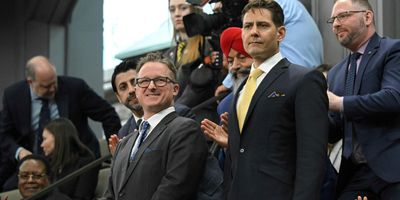For three years, Canadians were outraged by China’s detention of Michael Kovrig and Michael Spavor, two Canadian businessmen arrested in 2018 on allegedly false charges of espionage. But the myth of the “Two Michaels” just exploded with
revelations this weekend that Kovrig had previously been a Canadian intelligence asset who, according to Spavor, may have embroiled him in spying without his knowledge.
Spavor and Kovrig were arrested shortly after Canada detained Huawei’s Chief Financial Officer Meng Weng Zhou on charges of violating American prohibitions on doing business with Iran. The two men spent over 1,000 days in prison, including many in solitary confinement, and were subject to severe forms of interrogation. Spavor was sentenced to 11 years and Kovrig was awaiting sentencing when the pair were released after the US struck an agreement in 2021 to allow Weng Zhou to return to China.
At the time of their arrest, Spavor, a fluent Korean speaker, ran a tourism operation in North Korea, which allowed him to spend time socializing with North Korean dictator Kim Jong-un. Spavor gave unspecified information about these encounters to Kovrig, who it is alleged secretly passed it on to the Canadian government and its Five Eyes partners.
At the time, Kovrig did not have a diplomatic passport, which may have led Spavor to believe that Kovrig was no longer in contact with the government or the intelligence community and that he would not pass on any information shared with him. Kovrig was working for a non-governmental think tank, the International Crisis Group, but had previously worked in Global Affairs Canada and its Global Security Reporting Program before taking a leave of absence in 2017.
Global Affairs has so far
denied the validity of Spavor’s claims, saying that "Perpetuating the notion that either Michael was involved in espionage is only perpetuating a false narrative under which they were detained by China." For his part, Spavor is now seeking a multimillion-dollar settlement from the Canadian government and has retained John K. Phillips, the lawyer who secured a CA$10.5 million settlement for alleged terrorist Omar Khadr over Ottawa’s refusal to allow him to serve his sentence in Canada rather than at the notorious US prison at Guantanamo Bay.
